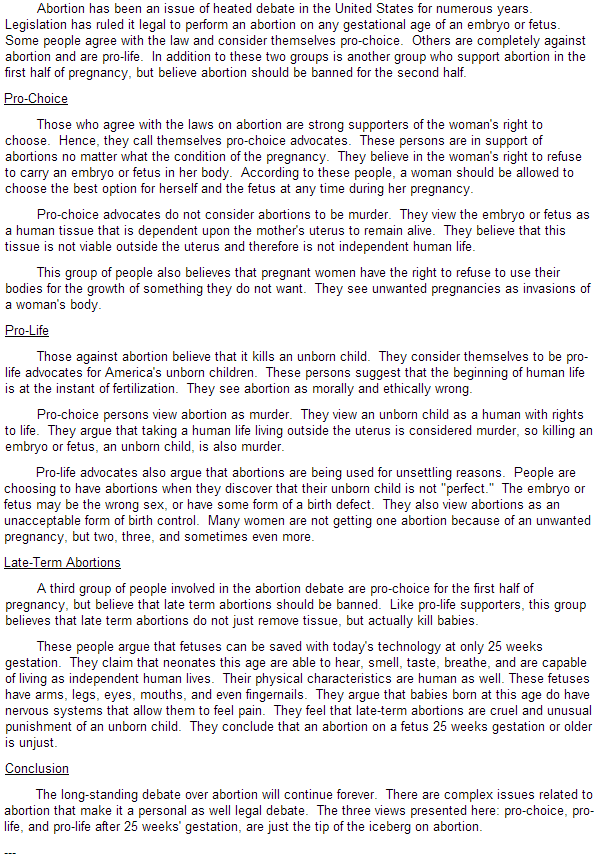Last updated: July 2019
Oh no, not again!

image source: Unsplash
Essay types are numerous, and students have to know them all, as well as understand the difference between them. What to do if a professor assigns a dialectic essay to you?
The assignment: write a dialectic essay on the topic of your choice, it should be about 2 double-spaced typed pages (600 words maximum). Follow the structure and clearly label each section of your essay.
Here goes the definition of a dialectic essay for you again:
Dialectic essay is a sort of argumentative dialogue or debate, where a writer should make a thesis and use different arguments and counterarguments to prove this thesis’ verity.
Unlike critical précis, a dialectic essay is not about taking a single stand on the issue. Here you should represent all arguments, even if you don’t agree with some of them. A professor might ask to share your opinion in conclusion, but this essay type is more about a rational discussion of all sides.
It is like a conversation among several people:
- One introduces and proves an argument.
- Another one objects it, providing a counterargument and, therefore, starting a debate.
- Finally, a third one responds to the objection with arguments, different from those in the first paragraph.
Why do they ask you to write a dialectic essay?
Nope, that’s not because your professors hate you.
By assigning dialectic essays, they want to check your ability to clarify thoughts on a particular subject. This essay type is perfect for presenting the subject from different points of view, considering its both positive and negative aspects, and making a conclusion accordingly.
Writing a dialectic essay, you learn to see all values and vices of the thesis, as well as explore the subject in depth.
What is the structure of a dialectic essay?
It reminds a standard 5-paragraph essay, which consists of an introduction, where you present your argumentative thesis, a body of three parts, and a conclusion.
How to organize a dialectic essay?

Introduction (a thesis itself)
First of all, the introduction of your dialectic essay should represent a thesis. To introduce a debate in the paper, make sure to choose a topic and thesis that have at least two interpretations.
Make your thesis controversial to have an opportunity of representing opposite views in your essay. And yet, don’t make the introduction too long. This part of your dialectic paper consists of one paragraph.
Argument
Paragraph 1 of a dialectic essay presents one argument with facts to support and prove it to the audience. It (argument) supports your thesis.
Objection
The second paragraph of a dialectic essay responds to the argument of Paragraph 1, providing the objection to it.
NB! This paragraph objects the argument, not the thesis. Give reasons why it’s not the ultimate truth, and support your objecting with proofs. In this way, you make an essay a kind of a debate between two people with opposite views.
Response
Paragraph 3 of a dialectic essay is your response to the objecting. However, don’t refer to the same arguments you used in Paragraph 1. This part of your essay responds to the objection from Paragraph 2.
There is no need to provide new arguments for the thesis because your task here is to criticize Paragraph 2.
As a rule, the only right argument of your debate is that from Paragraph 1. The rest two serve to demonstrate your professor that you understand the thesis in depth and see its all interpretations.
Conclusion
The aim of a final paragraph is to support the initial thesis of your dialectic essay or represent a new one, which would combine both arguments and counterarguments.
NB! Don’t change the thesis! It may be a kind of modification supported by more proofs but not a complete reversal.
This sample of a dialectic essay will help to understand the sense of such a writing assignment better.
Sample
Three Opposing Viewpoints on Abortion
by Amy Geiger

From: tc.umn.edu
Dialectic Essay Topics
| Does science complement religion? | Should children join social media? |
| Are online games dangerous? | Should there be a limit on the number of children in one family? |
| Does the development of science affect attitudes toward religion? | Should there be online voting procedures? |
| Should educational institutions be free? | Should alcohol ads be shown? |
| Can teenage love be real? | Is lunch a compulsory meal? |
| Should we remove borders in countries? | Can the enmity between countries be ended? |
| Is the grading system correct? | Does giving up sugar help get rid of obesity? |
| Does success in school mean success in later life as well? | Should strangers be prohibited from communicating with children? |
| Could lotteries be dangerous to the nation? | Do international champions rally the country? |
Dialectic Essay Tips
First, you must recognize that dialectic writing is one of the rarest types of papers that do not occur too often. Because of this, learning how to write them well can be a big challenge because there will be little practice. This type of writing generally involves a reasoned dialog between the writer and the arguments for and against.
Here are some essential writing guidelines:
- First, you should read all the teacher’s requirements, because they can differ. In the future, this will help you to make a minimum number of mistakes.
- After that, try to choose a topic you already have experience with. Thanks to this, you can develop a writing plan and not make mistakes in facts.
- Be sure to research the topic to find out all sides and positions of the participants. You need to prove and disprove your arguments at the same time.
- Write an outline of your essay and specify everything down to the smallest detail. This will help you not to get confused in your argumentation.
- After writing, read your essay to your friends and acquaintances. This will help you find weaknesses and correct them.
In general, you need to pay the most attention to your sources of information. Ensure that all the cited studies are written correctly and do not contradict each other.
So, now what?
Once your professor assigns a dialectic essay, follow this checklist to make sure you don’t miss anything:
- Choose a debatable topic (except as noted).
- Come up with a thesis and represent it in the introduction of your dialectic essay.
- Think about all the possible pros and cons of the thesis.
- Organize all ideas to determine both arguments and counterarguments.
- Write three paragraphs of your essay, with each objecting and responding to a previous one.
- Make sure that your counterarguments don’t object the thesis but arguments from previous paragraphs of a dialectic essay.
- Finish your dialectic essay with a conclusion that would support the thesis and initial argument.
- Proofread and edit your essay.